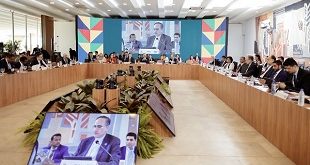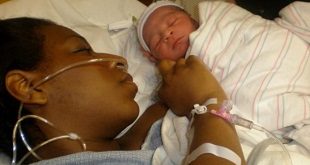Kagame’s personal role in this reconfiguration of public institutions is a shining example for many Africans and non Africans across the globe. Kayumba trivializes this as demagoguery and playing to the public gallery. I found this unfair and also an insult to many Rwandans who have made extraordinary effort to build this institutional culture. In spite of his weaknesses as a person, even those who hate him would agree that Kagame has demonstrated a strong personal commitment to build a state that serves the citizen.
Since 2003 Rwanda has been reconstructing the internal organization of the state in a process unseen in Africa before; building a public sector that espouses a collective vision, has a strong esprit de corp and a government that serves the people. It has also reconstructed state-society relations by initiating a transition of its people from being clients to becoming citizens enjoying equal treatment under the law.
The transformational value of these reforms gets lost because our understanding of democracy in Africa is very superficial. Most debate tends to focus on the procedures of democracy rather than its substance; elections, party competition, number of newspapers etc. Though important, these aspects of democracy work only when undergirded by the kind of state that we do not see in most of Africa but we see evolving in Rwanda. In the absence of such a state, these aspects of democracy produce gangster politics that is now the hallmark of politics in Africa, especially in Uganda.
It is true Rwanda under RPF has been bedeviled by major setbacks ‘ like limited expansion of press freedom, persistent flight of political dissidents to exile and like all nations, it has its political intrigues as well. However, what Rwandans have achieved under the RPF, especially given the inherited constraints in that country is nothing short of miracle. Therefore, people do not rate the performance of RPF and Kagame as excellent because they think they are angels; it is by situating their achievements in the specificity of Rwanda’s context.
I am sure that Kayumba was a major player in this great transformation. Equally, Karegyeya played a central role in building the foreign policy architecture of post genocide Rwanda. They did so because of the organisational strength of the RPF. So, they share alongside many others in its achievements and failures. Yet Kayumba wants credit for the achievements and apportions all blame for failures on Kagame.
It would be unfair to deny Kagame’s personal contribution without which it is inconceivable that RPF would have won the war and registered the achievements it has. Kagame, like Julius Nyerere, Nelson Mandela or even Yoweri Museveni demonstrates the role of individuals in the destiny of nations. His achievements have been realized within the limits imposed on him by Rwanda’s circumstances and his own personal limitations as a human being.
It is possible that the accusations for which Kayumba has been forced to leave his country were based on a misunderstanding of his intentions and actions. But he should not judge Rwanda only through his personal experience. There are many Rwandans who have been jailed for months or years on the basis of unfounded accusations. When Kagame calls for an investigation into a corrupt deal, some of his lieutenants, hungry to please him grab even innocent bystanders and throw them in jail.
While I appreciate the personal pain, I also do recognize that the war against corruption cannot be fought without collateral damage, especially because of weak institutional capacity. Even for Kayumba, there must be people he sent to jail while in positions of responsibility who may have been as innocent as he thinks he is today. This is because leadership involves making many and difficult tradeoffs.
If he did not reduce the history of the RPF and Rwanda to his personal misfortune, Kayumba would easily appreciate the complexity of Kagame’s dilemma. I hope from his exile, he gets time to reflect so that he can tell the story of Rwanda as a country facing the challenge of nation building and where Kayumba is not the whole but only a part of that story.
amwenda@independent.co.ug
 The Independent Uganda: You get the Truth we Pay the Price
The Independent Uganda: You get the Truth we Pay the Price



